(posted June 30) Do you enjoy learning with others? Living U, the lifelong learning institute of Living Branches, opens fall semester registrations for seniors from July 16-29. Classes include nonresistance in the Civil War, benefits of tai chi, food genetics, demographics of Montgomery County, Lebanon culture and history, quantum mechanics, caring for refugee children, deepening purpose after retirement, Christmas music, and more. For information, go to https://livingbranches.org/about/living-u-lifelong-learning/ or contact Maribeth Benner, Living U coordinator, at 215-368-4438 ext. 44204.
Living Branches
Strengthening Meaningful Connections with Conference-Related Ministries
by J. Eric Bishop, Souderton Mennonite Church
To live more fully into the congregation’s mission statement, “Strengthening Meaningful Connections with Christ, Church, and Community,” Souderton (PA) Mennonite invited a Mosaic Conference-Related Ministry (CRM) to present each week during their Summer 2024 Sunday School elective series, Gifted to Serve.
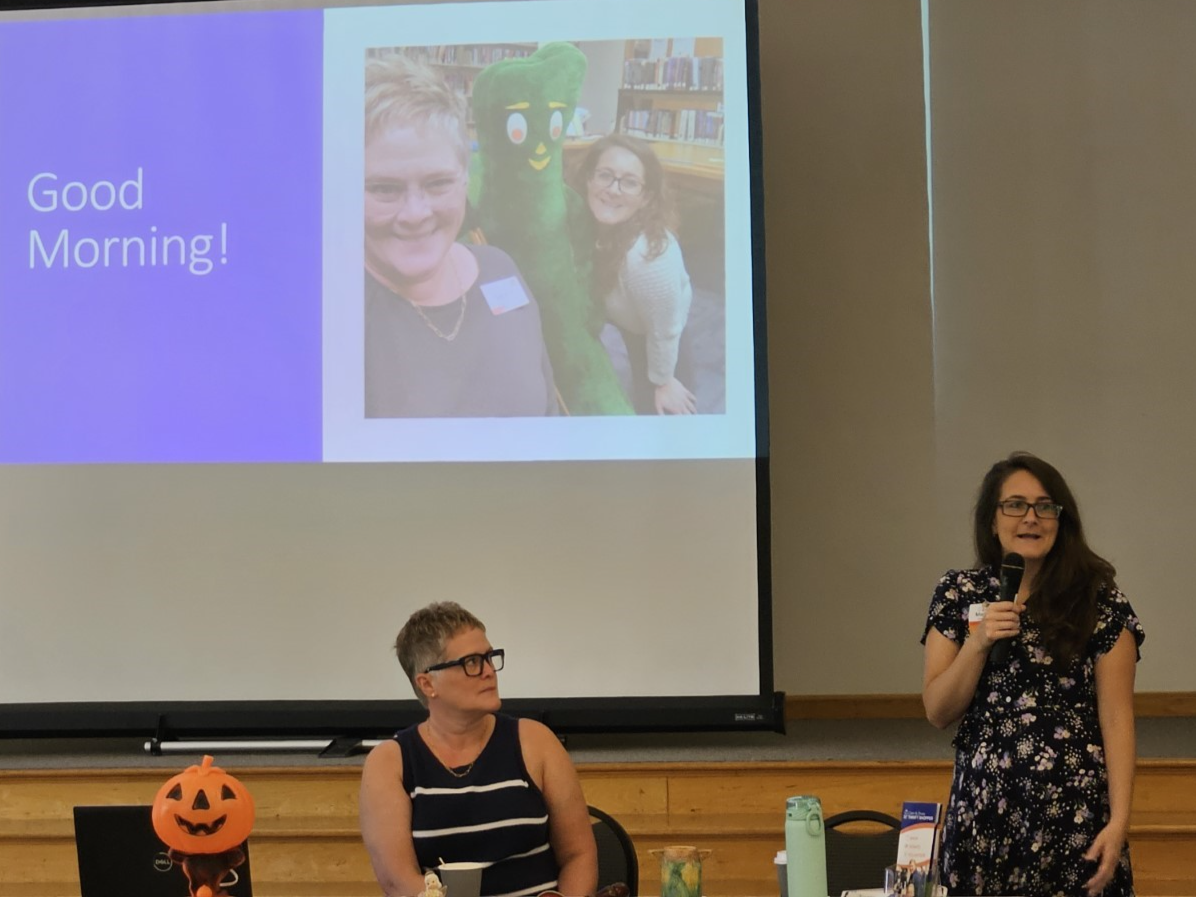
The CRM representatives presented a brief history of their organization and its purposes and goals. In an interview style format, they shared how their ministry nurtures discipleship, helps people grow in their gifts, and encourages service. Many stories were included to illustrate an organization’s effectiveness. A congregation member connected to the organization served as host and interviewer. Some CRM representatives used media presentations and display tables. Each session began with a short teaching on spiritual gifts, led by a congregation member, which was the unifying theme among the nine Sundays.
This elective series was designed by the Spiritual Formation Team, and the stated goals were that attendees would: learn about the work of Mosaic CRMs; think about how they are using their own time, energy, resources, and spiritual gifts, and if they are called to use them in different ways; and identify and celebrate the variety of gifts and ways people serve in order to glorify God.
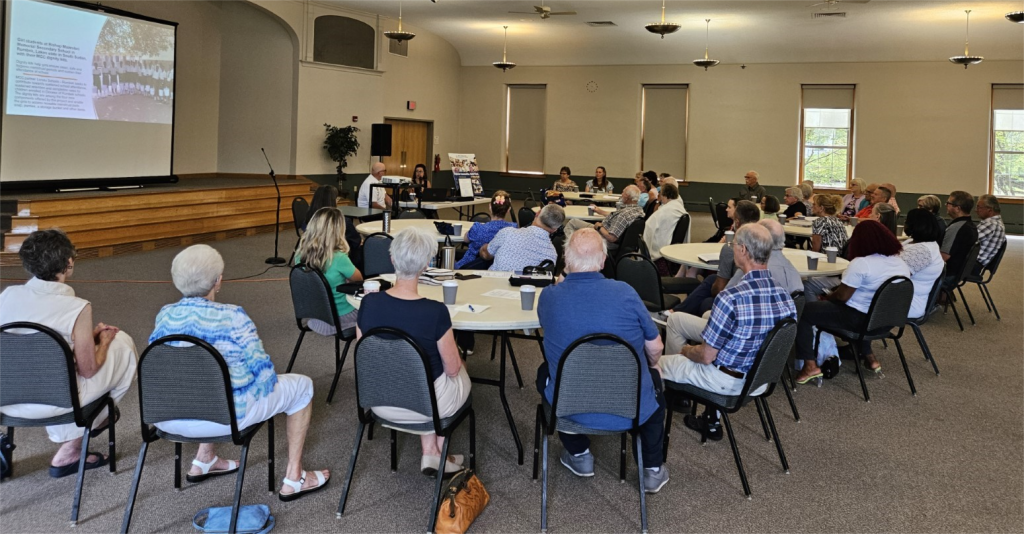
The primary challenge, the Spiritual Formation Team discovered, was drawing people to hear about organizations about which they believed they were already sufficiently familiar. Congregants involved with the CRM being represented (e.g., those who serve at the MCC Thrift Shoppe Care and Share), eagerly attended those sessions. But the turnout for the session about Quakertown Christian School was low, as no Souderton families have students attending there, and the adults who did attend no longer have children in the K-12 age range.
However, the elective averaged 45 people each Sunday, and those who attended learned much and appreciated the candid leadership of those who shared. One Souderton Mennonite participant said, “I really enjoyed the summer elective. It was enlightening to hear about the good Kingdom-work being done through our CRMs. I didn’t realize there were so many, and it was encouraging to see how the message of Jesus is being proclaimed and lived out through Mosaic Conference by these ministries.”
Representatives from the following CRMs participated in the elective series:
- Dock Mennonite Academy
- Mennonite Economic Development Association
- Peaceful Living
- Quakertown Christian School
- Living Branches
- Care and Share
- Spruce Lake Retreat
- Mennonite Central Committee Material Resource Center
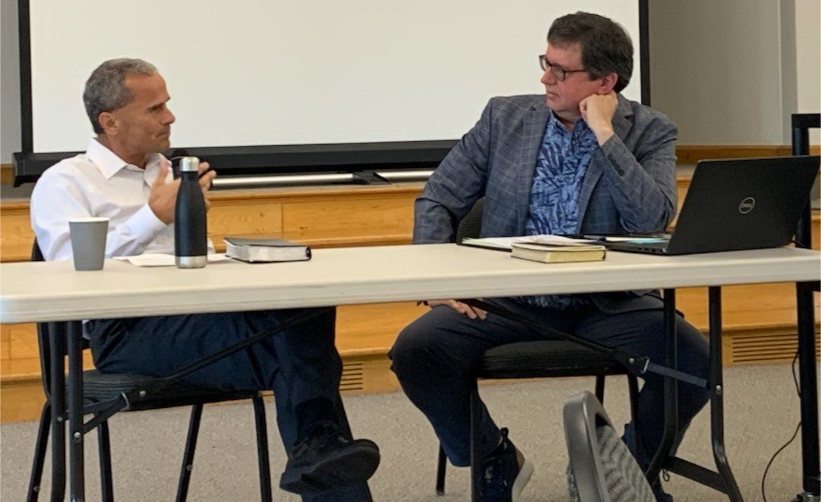

J. Eric Bishop
J. Eric Bishop, PhD, taught both English and German at Christopher Dock Mennonite High School (now Dock Mennonite Academy) for 37 years. He currently serves two days a week as Director of Curriculum and Instruction at Quakertown Christian School. He also produces legacy books about local businesses. Eric is married to Linda Hostetler. Eric and Linda are active members of Souderton Mennonite Church.
Conference Related Ministries (CRM) Profile: Living Branches
Living Branches was created through an affiliation between Souderton Mennonite Homes and Dock Woods Community in 2008. This decision was made not only because of proximity to each other, but more importantly, because both organizations were ministries of the Mosaic Mennonite Conference and shared common beliefs and values.
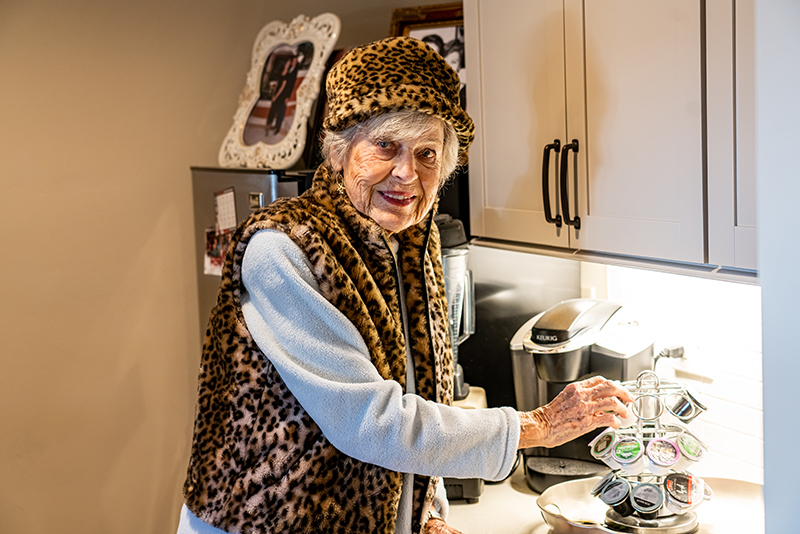
These senior living communities had a longstanding history in the area. Souderton Mennonite Homes was established in 1917 as Eastern Mennonite Home of the Franconia District. Hatfield Mennonite Home, later renamed The Willows of Living Branches, was founded by the Mosaic Mennonite Conference in 1942. Dock Woods began in 1981 as an outgrowth of the Hatfield Mennonite Home. Today Living Branches employs more than 650 team members and offers a wide range of housing, support services, and engaging activities for more than 1,350 residents.
Souderton Mennonite Homes and Dock Woods are life plan communities offering the full range of care services: Residential Living for persons seeking retirement living and Supportive Living for persons needing Personal Care (Assisted Living), Memory Care, or Health Care (Skilled Nursing). The Willows of Living Branches offers Personal Care and residents have access to Memory Care or Health Care within Living Branches.
At Dock Woods, Living Branches also offers affordable housing for older adults and families who qualify for HUD housing rental assistance.
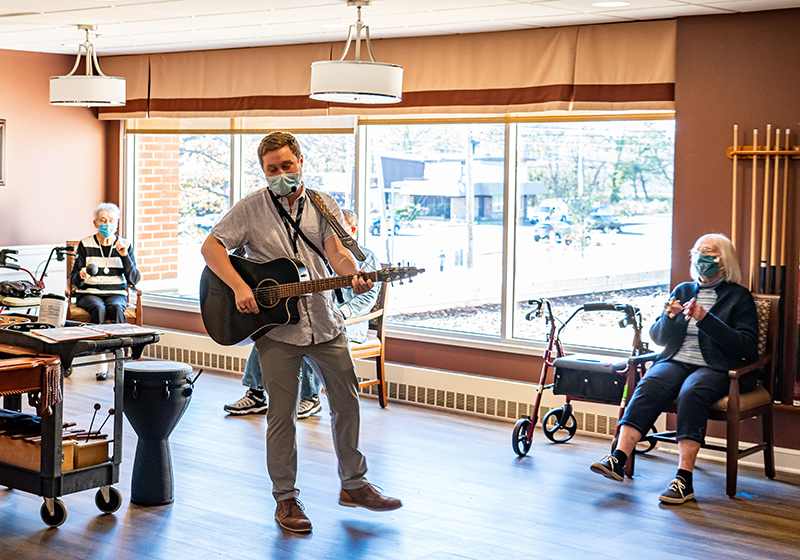
What began as a mission to provide a home for senior adults and care for their basic needs has evolved into a vibrant, life-giving community that cares for the physical, mental, emotional, and social needs of every resident. Our mission to empower older adults and families to lead lives of purpose and joy guides all that we do. From pastoral care to social services, fitness, and dining, we truly care for the whole person.
In recent years, we have devoted ourselves to investing in care specifically for persons with dementia. The creative arts therapy program has brought so much life to our communities; the team of interns led by the creative arts therapy coordinator fill our hallways with music, art, and movement. The Music & Memory program provides personalized music playlists for persons with dementia to reawaken memories from their past. And our Montessori-based philosophy of care allows us to empower persons with dementia by focusing on what they still can do and would like to do, instead of what the disease has taken from them. We see these things making a difference and adding joy and purpose to the lives of residents each day.
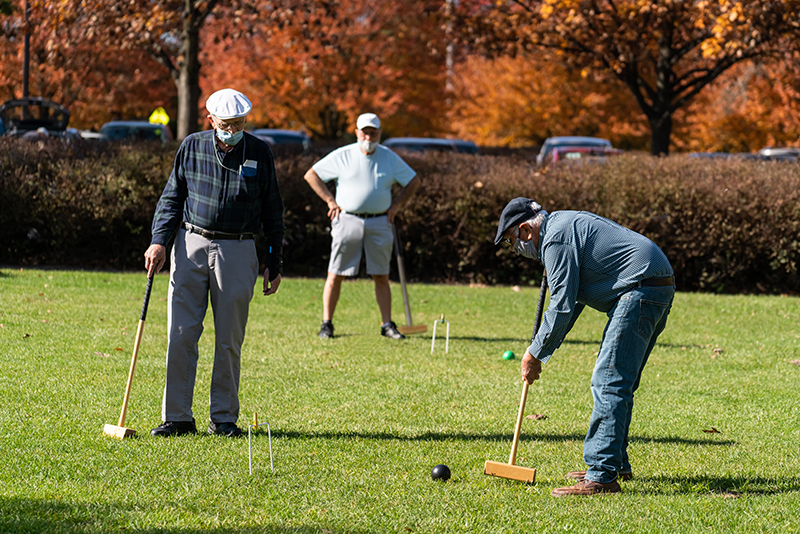
The mission also extends to Living Branches Foundation. At Living Branches we make a lifetime commitment to our residents and their care. Benevolent care is a ministry which provides grants to residents who, through no fault of their own, can no longer cover the full cost of their care. This is a vitally important ministry and serves over 100 residents each year.
Life at Living Branches changed in ways we never expected in 2020. In fact, it seems every aspect of what we do has changed in some way, but through it all, our residents and staff have been resilient. We look forward to getting to the other side of Covid-19 and know we will get there together.
Prayer Requests:
- For our residents who are socially isolated due to Covid, pray for peace of mind and comfort for their spirits.
- For our staff who have worked so hard under challenging circumstances, pray for strength and hope.
- For our future, pray that our plans will meet the needs of our current and future residents.
When Life is CANCELLED
When the calendar said CANCELLED, George stepped in.

George, a 4-foot stuffed gorilla on “staff” at Living Branches (a Conference Related Ministry, CRM, retirement community in southeastern PA), stepped up when life shut down. Before the pandemic, George’s role was to bring a smile to those whom he met in person. But now, George was on a mission.
In March, retirement communities responded to Governor Wolf’s “stay at home” directive. Most of the daily activities that provided connections and community for residents were suddenly cancelled.
When foot traffic and travel was cancelled, “Out and About with George” served to bring “community” back to the residents by bringing them along for the virtual journey through videos and photos that were shown on the in-house TV channel. George enlisted others, including CEO Ed Brubaker, to share the story, pictures, humor, and conversation of their travels.
Among George’s adventures was a 93-mile bike ride with Brubaker, a day at the beach, roasting marshmallows over a campfire, and riding a John Deere tractor. A highlight was George’s participation at the graduation of Nursing Assistants.
George was not alone sharing joy during challenging times. Volunteers at Frederick Living doubled their efforts as well. Supplies were provided to residents to continue individual participation in the Mennonite Resource Center (MRC) quilting project. Volunteers ensure care and food for the pair of swans that grace the pond at Frederick Living. Other volunteers restack library bookshelves. Some work to ensure that worship is broadcasted live to residents.
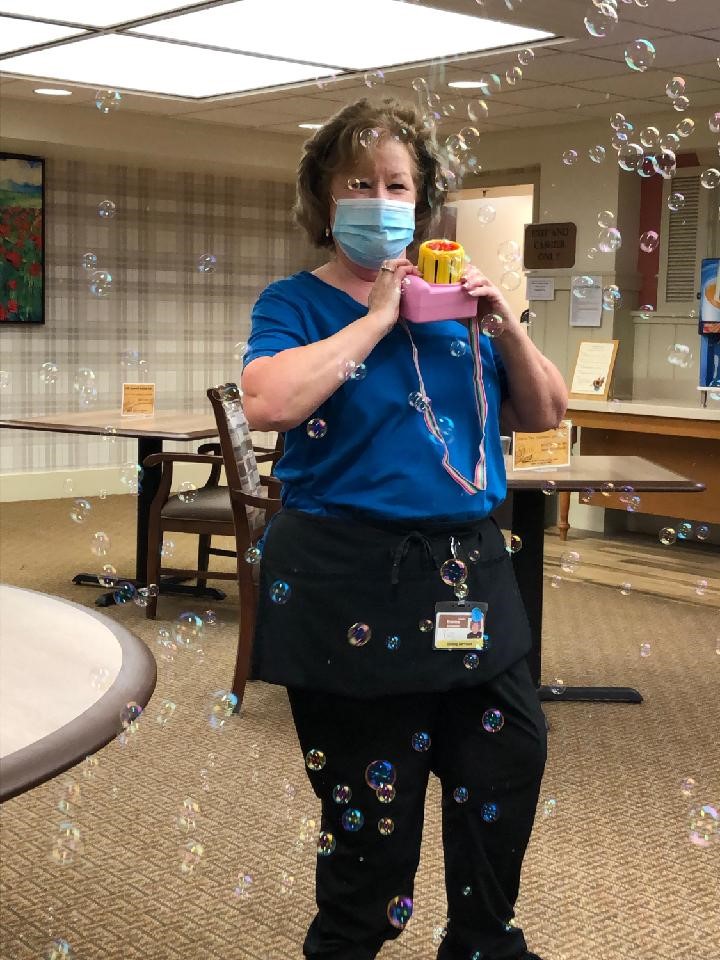
Because of the efforts of those who have stepped up, the quality of life is most certainly not cancelled. Yet, the pandemic still has been difficult for residents. “It has been sooo long. We want to gather, visit, eat, and worship together,” a resident shares. “We miss hugs, family dinners, and singing.”
Video visits and the chat room bring family and friends together. Worship services, exercise classes, and movies through in-house channels fill those cancelled spots. “We have found that innovation, resilience, patience, and prayer keep our Life Communities together,” says CEO John Hendrickson of Frederick Living.
CEOs continue to emphasize how staff team members are showing genuine love and care for the residents during this time. Wearing PPE, staff members sweat as they protect our residents and have volunteered for the little extras that mean a lot. They continue to provide care in spite of anxiety surrounding their health.
And, although the PA Department of Heath has eased visiting regulations, how those regulations will be implemented will be balanced with risk and safety. Finding the appropriate response is a daily challenge.
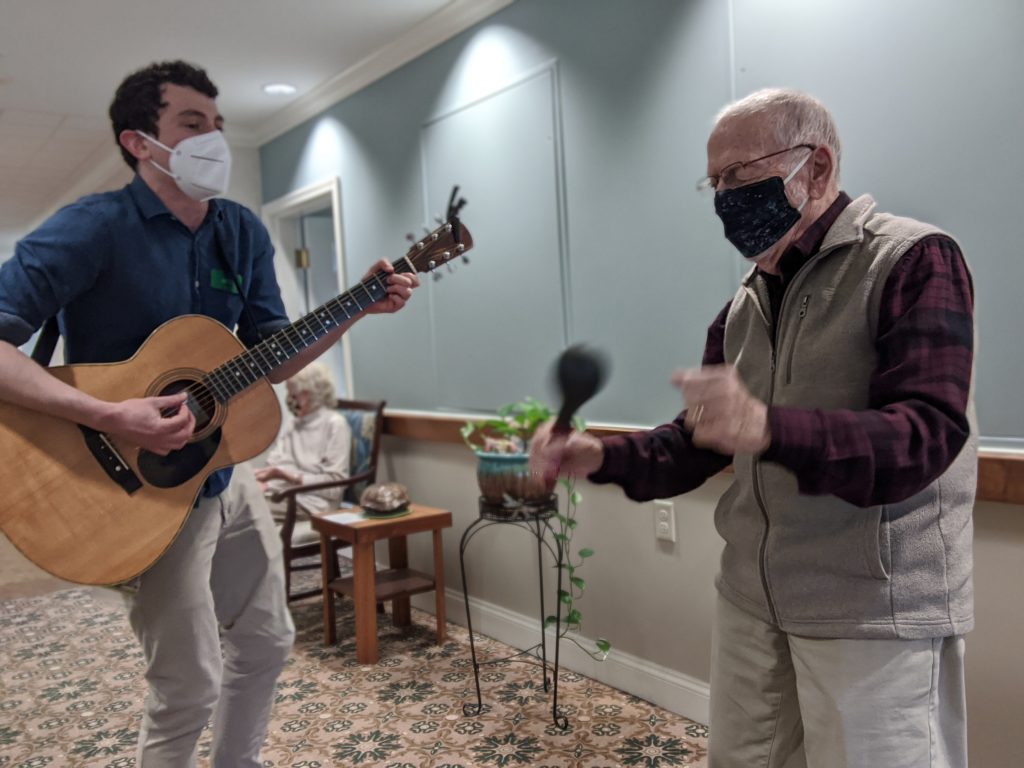
Through it all, the universal longing for personal touch and connections is never cancelled. “The wait [to hug my mother again] was hard, but we are very thankful that our community follows science and procedures that keeps my mom and other residents safe,” says Sharon Metzler-Ruth, whose mother is a resident at Souderton Mennonite Homes. “There is nothing more important than that.”
“This is a challenging, frustrating, and maddening time,” says Ed Brubaker, CEO of Living Branches. “But [it is] also inspiring as I have watched folks ‘step up’ and do their work in amazing ways.”
We are community. We are hands and feet serving and creating a helpful, just, and Spirit-filled community. Please pray for all of our Conference Related Ministries in this unprecedented year, as we live our faith together.
Creating Helpful and Spirit-Filled Community
by Jennifer Svetlik, Salford (Harleysville, PA) congregation
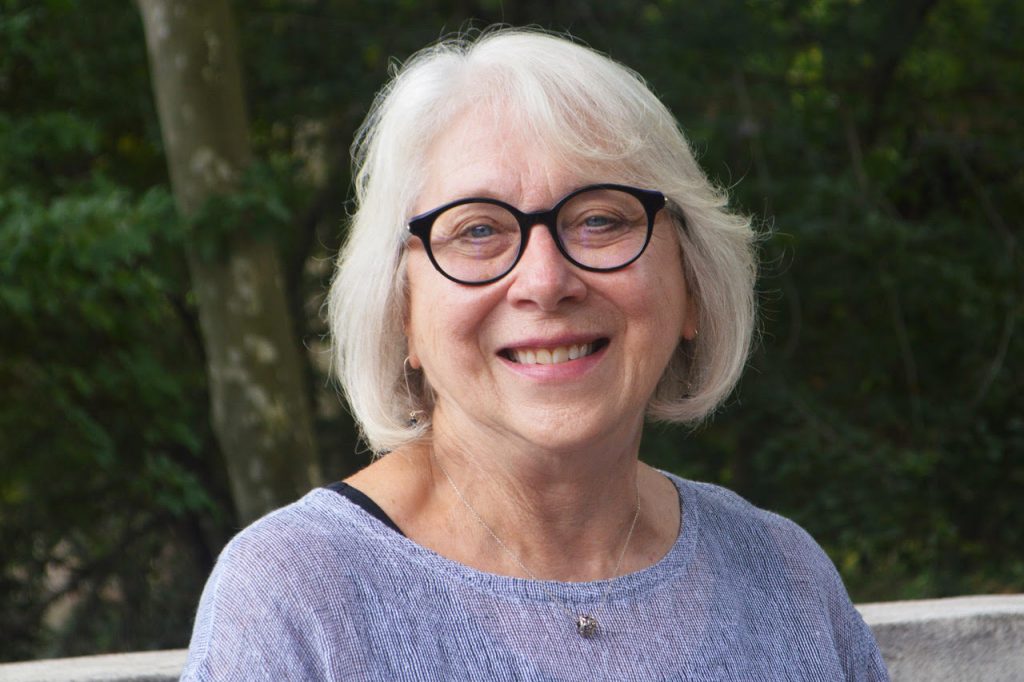
“How lifegiving it is to recognize that our congregations are not just alive on Sunday morning,” shares Margaret Zook, Director of Collaborative Ministries for Mosaic Conference. This new part-time role serves as the team leader for accompaniment relationships with Conference Related Ministries (CRMs).
“There is such a richness in our CRMs,” reflects Zook. “They each have a unique origin and focus on meeting a particular community need.” Zook anticipates assisting congregations and CRMs to bring their skills and knowledge together more intentionally in order to create a more helpful, just, and Spirit-filled community.
Zook brings a wealth of experience to this new role, having worked for and leading several CRMs in southeastern Pennsylvania. For over 20 years she served as Executive Director of Souderton Mennonite Homes, a CRM that was created in 1917. Then five years ago, after Souderton Mennonite Homes merged to become part of Living Branches, Zook was called back to serve as Director of Church and Community Relations. She has also served on numerous boards of community organizations, including 10 years on the board of Penn Foundation, another CRM.
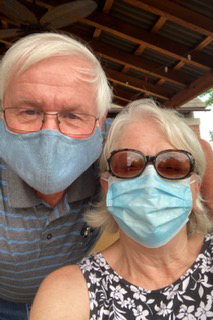
Photo provided by Margaret Zook
“I have thoroughly enjoyed working with CRMs through my professional life and board work,” shares Zook. “These experiences have made me see the value of being connected to and supported by the conference.”
In her role Zook will visit the CRMs and relate to their boards and leadership. She will listen to and share the stories of their missions, successes, and needs across the conference. “I am delighted to have the opportunity to walk along the existing and new and emerging CRMs,” Zook explains. “Hearing, seeing, and sharing the transforming work that is being done is such an honor.”
Zook knows the value of a conference network for these organizations. “A foundation of faith and a connection to church sets CRMs apart from other nonprofit organizations,” she shares. “It gives a sense of accountability that is a stabilizing force for an organization.”
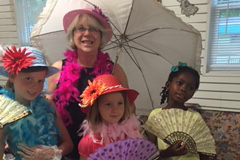
Photo provided by Margaret Zook
Most of Zook’s life has been in southeastern Pennsylvania, both intentionally as well as by birth. “I have loved my congregation [Salford] and my community,” Zook reflects. She has a fairly large extended family, which includes ten grandchildren. She enjoys visiting her family in Florida and Colorado and staying in touch with them however she can.
Zook and her husband value walking together, and currently have a goal to walk the entire Perkiomen Trail, in sections. She is an avid reader and is a member of two book clubs. She enjoys gardening and friendships.
Professionally and personally, Zook identifies her faith as a motivating factor for life. “My faith drives me in a way I can’t put fully into words,” she explains. “It is who I am and what I do, and it leads me to service. I believe God has placed us here to make this earth a better place, to serve the beautiful earth and its people.”
Saving the Best Years for Last
by Steve McCloskey, Pastor of Taftsville (VT) Chapel Mennonite Fellowship
My friend, Aoum, was an international student from Thailand. One night I asked him, “What is the one thing that shocked you the most about American culture?” He said, “The way that you treat your elderly.”
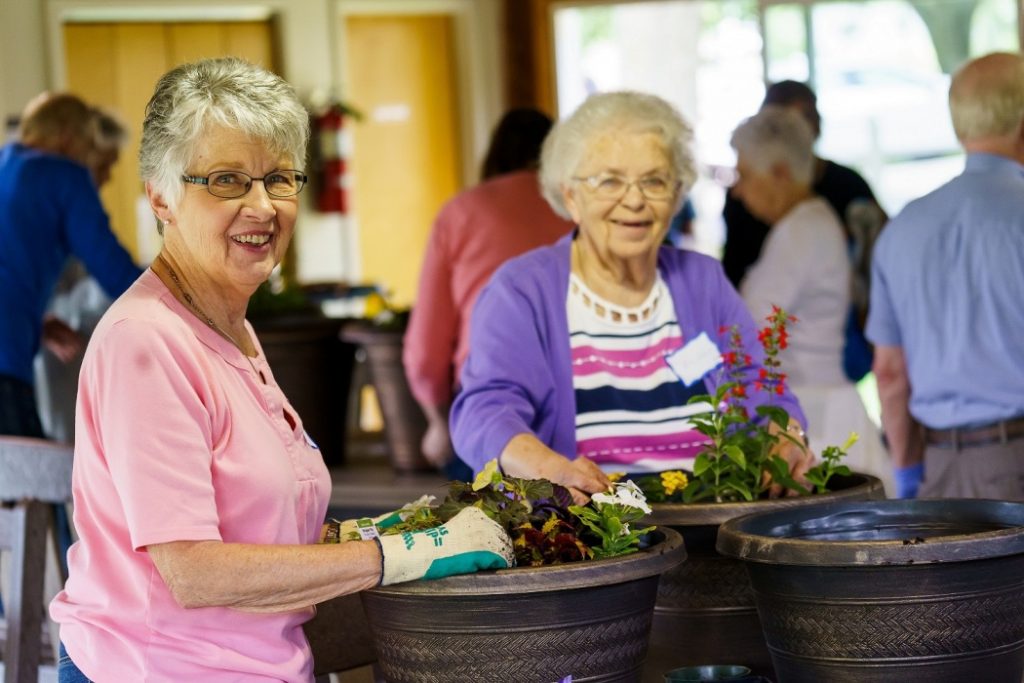
I can’t remember precisely what he said after this, but Aoum did not feel that we show the same dignity, honor, and respect to those who are aging as they do in other parts of the world.
In Vermont we have a significant elderly population. In 2018 it was reported that the median age of Vermont is five years above that of the United States. Many people come to the town of Woodstock to enjoy their retirement years. In my own church, most of my congregation is older than me.
As a millennial living in community with many people who are decades older than me, I recognize that I have at least two opportunities:
1) to learn from older generations about how to make the most of our final years on Earth, and
2) to honor those who have gone before me in ways that defy the norm that my friend Aoum found in US culture.
If we look to the Bible for inspiration, I am impressed with the biblical figures Abraham and Sarah. Their story pushes back against low-expectations of the elderly. The message from God to Abraham and Sarah is, effectively: “your later years will be your greater years.”
The book of Genesis introduces us to this couple when Abram is 75 years old. God calls Abram to leave his homeland and gives him a promise:
“I will make you into a great nation,
and I will bless you;
I will make your name great,
and you will be a blessing.
I will bless those who bless you,
and whoever curses you I will curse;
and all peoples on earth
will be blessed through you.” (Genesis 12:2-3, NIV)
Specific promises are made to Abram and Sarai about their descendants yet they experience decades of infertility.
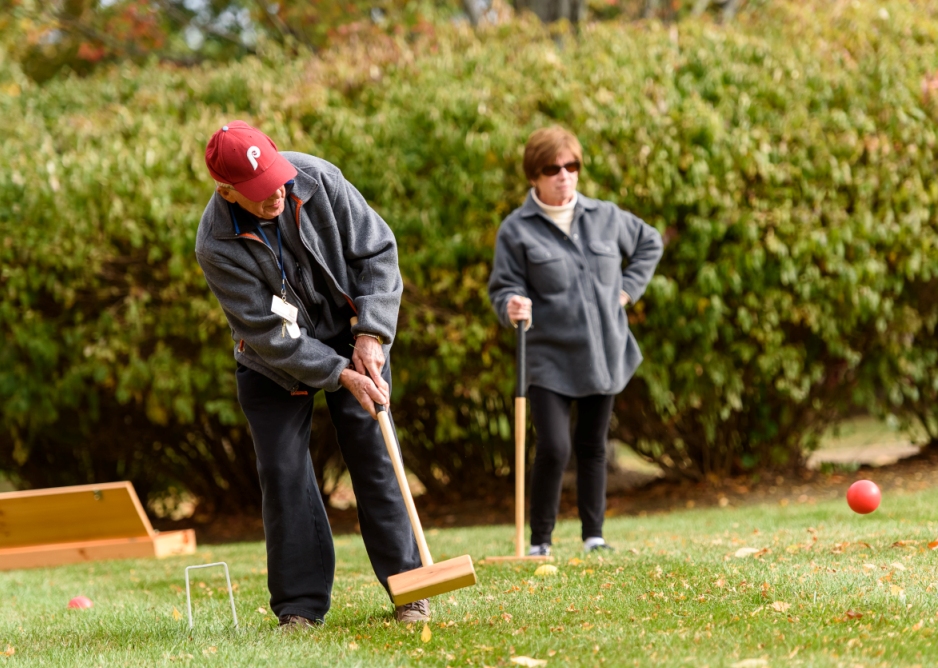
Over two decades pass and they still have not birthed a child together, but when Abraham is 99 years-old, God reiterates the promise, “I will surely return in due season and Sarah will have a son” (Genesis 18:10).
Sarah eavesdrops on God’s conversation with Abraham from within a tent, and laughs to herself, “After I have grown old, and my husband is old, shall I have pleasure?”
Sarah laughs at this notion–because, even without American cultural bias–this pushes against the grain of human expectations. Biologically, a body can have children during a certain window of time and after that, it’s inconceivable (a retro-actively intended pun).
Abraham and Sarah lived in a time and place in which your offspring and your ability to reproduce was the only viable way to preserve your legacy. It was through children that you would be remembered.
In the story of Abraham and Sarah, I see an invitation: whatever age you are, whatever stage of life you are in, you are invited to open yourself up to the possibility that God still has plans for you. Whether you are single, married, divorced, or wherever you are in life, I see in this story an invitation to renewal. Yes, even in your later years, like Sarah, you can find pleasure!
You are not infertile to God’s purposes. In the words of C.S. Lewis: “You are never too old to set a new goal or dream a new dream.”
Looking to the Future of Conference Related Ministries
by Margaret Zook, Living Branches, with Emily Ralph Servant
The Conference Related Ministries (CRMs) Task Force has been charged with proposing a plan for new and improved ways of relating to organizations associated with both Eastern District and Franconia Conferences after the two conferences form a new Conference next year.
Both conferences recognize the wealth of services provided by CRMs and the growth and potential of these ministries. Now, moving toward reconciliation between these two historic Conferences, there is a recognition that now is time to talk about the future. CRM leadership were invited to participate in three listening sessions, in which they talked with the task force committee and recommended revisions to what had been proposed by the Structure and Identity Task Force.

These gatherings provided space to discuss questions like: How has the relationship with the Conferences helped in nurturing established organizations and empowering new ministries in the past? How can the relationship between Conference Related Ministries and the broader Conference be mutually beneficial? What are ways to enhance communication, support leaders in the CRMs, and improve relationships between CRMs and the Conference structure?
What may prove to be most important moving forward is communication. There are some CRMs who have been ministering for 100 years and others that are just birthing; renewed communication between CRMs, the Conference, congregations, and the community is desired and needed for the future. Support can better happen if lines of communication are open and encouraged.
The final proposal, which will be shared in Assembly Scattered gatherings in October, will include a new CRM committee with board representation. This will allow CRM leadership new avenues for building connections within the conference structure and among conference congregations as well as creating a new space for CRMs to speak into our conference’s life together.

Each CRM has a unique ministry, each has a community, each has responded to a need and has founders or a board of directors who believe in its mission, and each has developed a unique set of skills, professions, and responses. Many CRMs offer resourcing, workshops, and services to the wider church community on topics such as aging, memory loss, music, mental health issues, welcoming those with disabilities, and parenting. Others provide opportunities to serve our communities at home and internationally, spreading the Good News through medicine, dental care, humanitarian aid, peace and justice advocacy, evangelism, microloans, and disaster recovery. Still others offer space for children (and adults) to meet God in classrooms, around campfires, and in stories from the past.
For the new Conference, this is a valued resource. These organizations and leaders represent a rich variety of missions to share with the broader community, which provide unique opportunities for our Conference to engage in new and creative ways. We as Anabaptists have been charged to “act justly, love mercy, and walk humbly.” Our CRMs have brought these words to life. May it continue to be so.
A Synergy of Missional Engagement
by Mike Clemmer, LEADership Minister & Pastor at Towamencin Mennonite Church

This past week, I had the wonderful opportunity of leading a litany of blessing and rededication for the Souderton Mennonite Homes’ Living Branches 100th Anniversary. This service was the final event of a year-long series of activities that gratefully acknowledged the past 100 years, while also casting a vision for serving the community in the years to come. Living Branches is the first and oldest established partnership in ministry with the Franconia Conference. Currently, there are 18 Conference Related Ministries (CRMs) that represent an array of extensions of the reign of God into local communities through nurture, witness, care and discipling. After my experience at this service, I wondered, how are we doing in supporting our CRMs?
At their core, Conference Related Ministries have a unique collaborative relationship with Franconia Conference and represent a fruit of faithfulness in the church’s history and future. CRMs have usually been born out of a deep desire to care for people in need, both in church communities as well as the physical community in which they reside. All the CRMs also have their own stories to tell. This is true of Souderton Mennonite Homes.
In the early 1900s there were no local retirement communities. Leaders in the Mennonite community wanted to find a way to care for the aging population in their congregations. They saw a need and collectively asked, how can we care for our community? Prior to this point, care for the aging happened within families. Although there was a heartfelt sense of love and responsibility for their older members, and care was provided for grandparents and parents by the younger generation – this often meant that the sick or elderly lived out their days confined to a bed, without easy access to proper care. At this time in our country, making ends meet was hard enough for many families and some simply could not provide adequate care. Much like in Acts 6, Franconia Conference leaders conferred about this great need and the seeds of the possibility of forming this “ministry” together were planted. On October 7, 1915, the Conference approved the project and appointed 12 trustees – all who understood that they would not be creating an institution, but rather, a “home,” embraced by the church. The Conference then looked to its congregations to help support the project financially, and the goal of $6,000 was surpassed as the trustees collected over $19,000. Shortly thereafter, the “Eastern Mennonite Home of the Franconia District” opened its doors in 1917 and the partnership with Franconia Conference has continued.
Stories like this one could be told by many other Conference Related Ministries. Indeed, the Conference has partnered with a variety of ministries in many areas of need including bringing help to disabled or special needs persons, collaborating in areas of aging and mental health, engaging together in camps and retreat centers, as well as working together in creating educational facilities and church plantings. By ministering together, our churches are achieving a synergy of missional engagement in our communities. We are truly the church when many members are working together to form one body in Christ – a body that shares resources and invites collaboration with many gifted volunteers – as we together exercise mutual care and love in showing hospitality to all those in need. After all, the church exists to benefit others. How are we doing at supporting our Conference related ministries?
